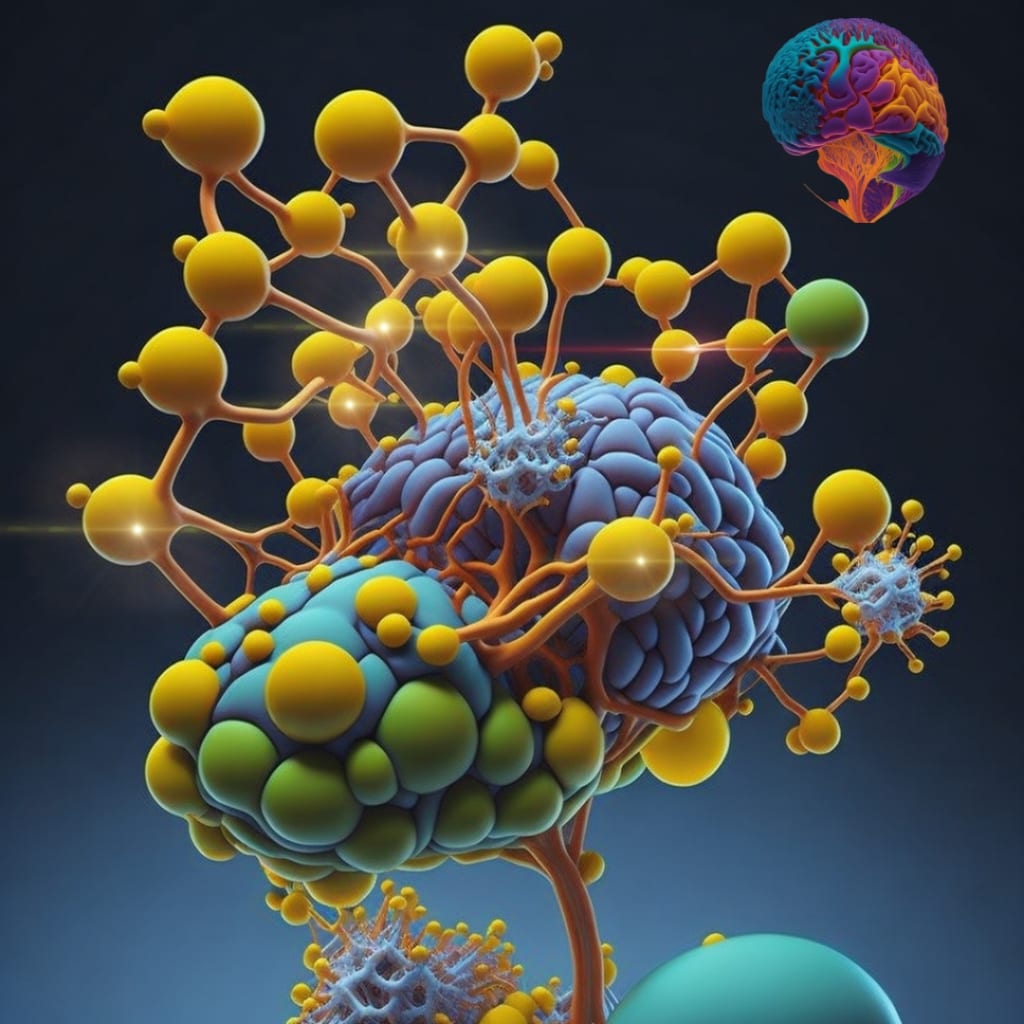The love and happy hormones
Neurotransmitters and emotions

When it comes to feelings of love and bonding, there are two neurotransmitters that play a significant role: serotonin and oxytocin. Both of these chemicals can greatly influence our emotional and physical experiences, and understanding how they work is key to understanding the ways in which humans connect.
Serotonin is a neurotransmitter that is responsible for regulating mood, appetite, and sleep. It is often referred to as the "feel-good" chemical in the brain, because it helps to lift our moods and promote a sense of well-being. Serotonin is also thought to play a role in promoting feelings of empathy and compassion, which can help to deepen emotional connections between individuals.
Oxytocin, on the other hand, is often referred to as the "love hormone." It is primarily associated with social bonding, including a mother's attachment to her child, romantic love, and even the bonds between friends. Oxytocin is released in response to physical touch and may play a role in promoting feelings of trust and loyalty in relationships.
Both serotonin and oxytocin can be boosted through a variety of activities, such as cuddling, hugging, and physical touch. Research has shown that these activities can increase levels of both chemicals, leading to a greater sense of connection and closeness between individuals.
One of the key ways in which serotonin and oxytocin impact relationships is by promoting feelings of happiness and contentment. When we feel happy and content in a relationship, we are more likely to view our partner in a positive light, which can help to strengthen the bond between us. Additionally, when we feel content and fulfilled in a relationship, we are less likely to seek out emotional or physical intimacy elsewhere, which can help to promote fidelity and trust.
However, it's worth noting that both serotonin and oxytocin can have downsides when it comes to relationships. For example, too much serotonin can lead to feelings of complacency or apathy, which can be detrimental to a relationship. Additionally, although oxytocin is often referred to as the "love hormone," it can also promote feelings of jealousy and possessiveness in relationships, which can be damaging if not kept in check.
So how can we harness the power of serotonin and oxytocin to create healthier, happier relationships? One key way is to prioritize physical touch and intimacy in our relationships. This can include anything from holding hands and cuddling to sex and other forms of physical contact. By doing so, we can boost levels of both serotonin and oxytocin, which can help to promote feelings of connection and closeness.
Another important strategy is to cultivate a sense of gratitude and appreciation in our relationships. When we focus on the good in our partners and express gratitude for the things they do for us, we are more likely to feel content and happy in the relationship. This, in turn, can lead to a boost in serotonin and oxytocin, which can help to deepen our feelings of love and connection.
Ultimately, understanding how serotonin and oxytocin impact our relationships can help us to create healthier, more satisfying connections with others. Whether we're looking to deepen a romantic relationship or simply foster more meaningful connections with friends and family, these chemicals can play a powerful role in promoting the sense of closeness and connection that we all crave.






Comments
There are no comments for this story
Be the first to respond and start the conversation.